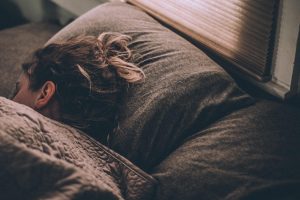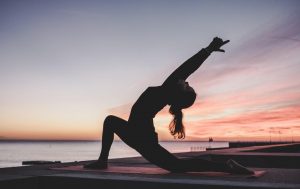How Does Outdoor Exercises Help You Sleep Better?

Physical activity is known to contribute to better sleep, but there isn’t a conclusive argument behind this match made in heaven. However, many researchers who have tried to look into the correlation between physical exercise and restful sleep are convinced that everything has to do with better brain and body functioning. This post explores all the possible reasons why outdoor exercise helps you sleep better.
The Correlation between Stress, Weight Gain, and Poor Sleep
This goes without saying: Exercise is the most effective fitness method for everyone. Outdoor exercises help you shed off the excess weight that you gain with age. And because excess weight is a risk factor for sleep apnea, shedding off some of it helps you to sleep deeper and better at night. That’s without forgetting that most fat cells accumulate around the neck, causing you to snore more than you should. That disturbs everyone you live with- something you definitely don’t want to do.
On the other hand, stress prompts your body to release excess cortisol (the stress hormone), which makes your sleep tiresome as opposed to being restful. Cortisol also interferes with your appetite-suppressing hormone that’s known as Leptin. When this hormone fails to function optimally, your levels of hunger surges, consequently making your body crave more than 300 extra calories. This added appetite causes unwanted weight gain and, in turn, lowers the quality of your sleep.
Another important fact to note is that insomnia is caused by anxiety. For the fact that exercising alleviates stress, by extension, we can argue that physical exercise is a remedy for insomnia. Another popular argument is that exercise is a natural stimulator of serotonin circuits, the part of the brain that aid in long-term sleep.
We have established that sleep, stress, and weight are indeed connected. For that reason, therefore, you need to invest your time in plenty of exercises, preferably outdoors. Exercising outdoors does more than help you shed off excess weight. It goes to the extent of enabling you to see the world in a better perspective and because you will be out there seeing the world and interacting with nature as you exercise, it helps you eliminate loneliness and cope better with stress.
What Type of Exercise Should You Do for the Best Sleep
You now know that exercise is an undoubted key to improved night’s sleep. The question now shifts to: Does the actual outdoor exercise you choose really matter? Well, studies show that vigorous exercise is the way to go if you are struggling with a bad mood and poor sleep. However, mild exercises such as walking for at least an hour a day also have tremendous benefits to the quality of your sleep. Here are a few examples of the exercises you can perform for the best, most restorative sleep:

- Cardio
Any moderate-intensity aerobic activity will do. Walking, stretching, or jogging, for example, can help you sleep faster and longer. Cardiovascular exercises raise your body temperature by at least 3 degrees Celsius, meaning that your body will naturally try to cool down to its normal temperature after the exercise. That dip in temperature promotes deeper sleep.

- Yoga
Yoga involves purposeful stretching and muscle twisting. It has almost the same effect on your quality of sleep as aerobic activities. Also, practicing yoga in an open space helps you focus more on your breathing, consequently having a stress relief effect on your brain.
- Biking
Fixing your fitness issues is pretty straightforward if you own a classic bicycle. Just get on the bike and cycle vigorously for at least 1.5 hours and you will magically start enjoying your sleep better. The natural light you enjoy as you bike and the beauty of nature you consume are both important elements for a perfect sleep-wake cycle.
What’s the Right Time to Exercise Outdoors?
The optimal time for you to engage in outdoor exercises is the morning hours. The temperatures are favorable during this time of day. It is also a great way to start your day- You will be happy throughout the day, meaning that you will sleep with a clear mind at the end of the day. If you don’t have time in the morning, then try exercising in the afternoon. Evening exercises are strongly discouraged as exercising stimulates the autonomic nervous system (you cannot sleep until it settles down, which might take hours).
Conclusion
Outdoor exercises are effective, but you will need to be patient for your new training routine to work. Some people need up to 4 months to start seeing positive results. Some need more time, others lesser time. The important fact to appreciate is that your quality of sleep will not improve right away.
